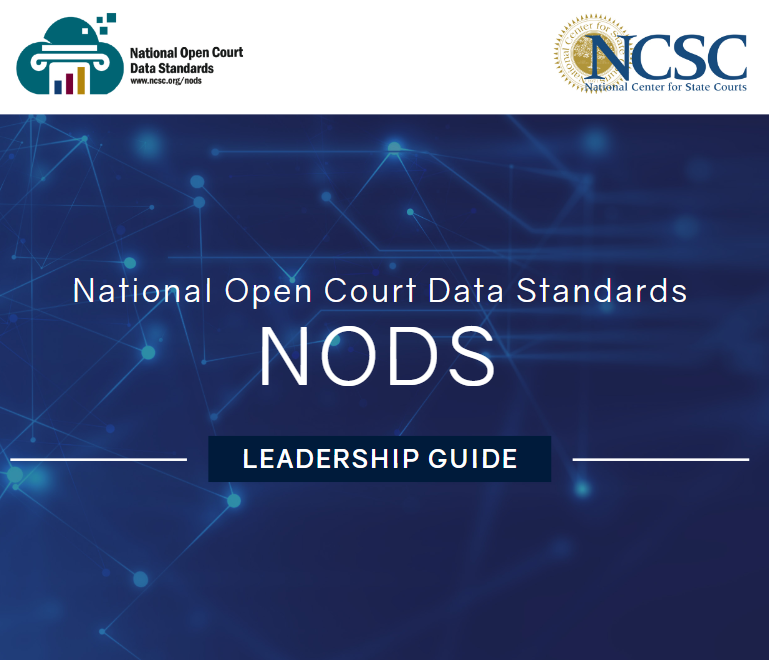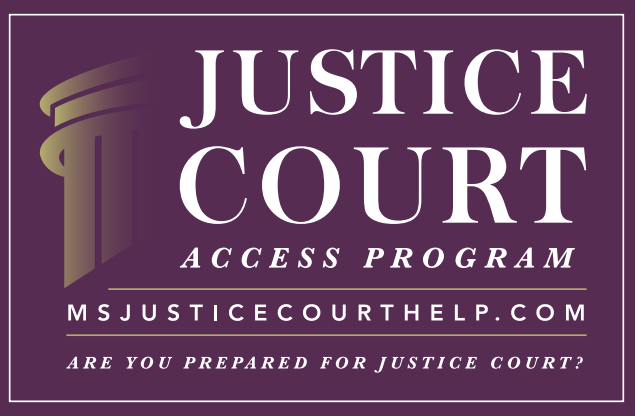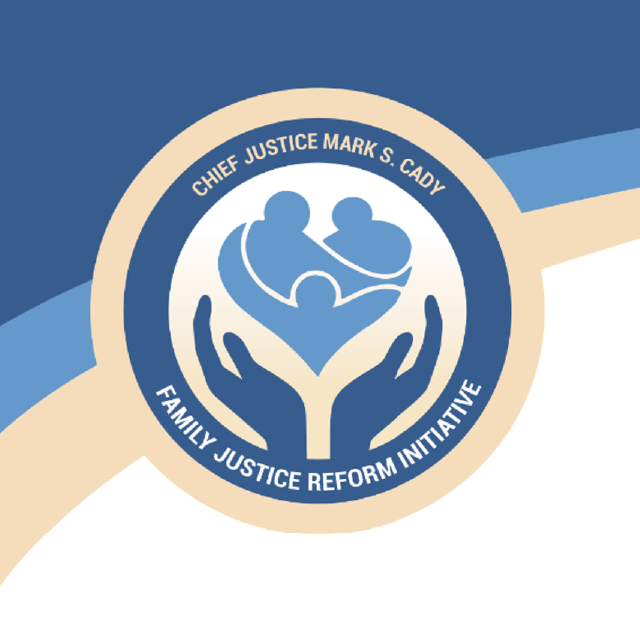SJI Grantee Spotlights

Implementing National Open Court Data Standards in Pilot Courts
The National Open Court Data Standards (NODS) consists of business and technical court data standards designed to facilitate the sharing of court data, ensure consistency in how data are understood and used, and reduce the costs and efforts required for courts to respond to data requests. In addition, several states are using NODS as a framework to build statewide data repositories.
Over the last four years, SJI has supported the implementation of NODS in 16 states. A recent evaluation of the project found that successful implementation has relied upon supportive executive leadership, dedicated staff, a designated NODS champion, and financial resources. Barriers to implementation have included a lack of resources, competing priorities, and insufficient leadership support. For states implementing NODS, it has been a useful tool to identify and address data governance issues. Most adopting courts indicated that their court began to collect new data elements due to mapping their case management system to NODS.
In addition to the core spreadsheet of data elements, resources available to courts and vendors include:
- NODS NIEM6 Message specification
- NODS User Guide
- NODS Leadership Guide
Along with Subject-area specific guides to NODS, including:
- NODS for Family Court
- NODS for Guardianship
- NODS for Traffic
- NODS for Criminal
These resources are available at www.ncsc.org/nods.
Webinars are also available to learn more about NODS, including a Data Dives Webinar on NODS and a special webinar on Better Traffic data with NODS.

Mississippi Center for Justice – Justice Court Access Program
June 1, 2022
Each county in Mississippi contains its own Justice Court where community members bring legal actions to settle local, small-dollar disputes. Court regulations and policies vary in each county, and they can be incredibly confusing for Mississippians to navigate, almost all of which are pro se litigants. The COVID-19 pandemic created more variation as judges and …

Texas Dispute Resolution System / Office of Dispute Resolution for Lubbock County – Mediation and Mental Health
May 2, 2022
Participating in the judicial system can be traumatic and stressful. Mediation is a tool used for resolving many judicial matters, thus mediators often encounter disputants experiencing the worst time of their lives. With this in mind, Texas Dispute Resolution System™ (TDRS) began a process to enhance their mediators’ skills and knowledge when engaging disputants during …

District of Columbia Courts – Language Access Project
April 1, 2022
The State Justice Institute awarded a key grant to the District of Columbia Courts’ Office of Court Interpreting Services to launch the Courts’ Interpreter Registry and the first-ever Amharic Court Interpreter Certification Examination. These initiatives demonstrate the Courts’ commitment to increase access for Limited English Proficient (LEP) and deaf or hard-of-hearing individuals to the judicial …

Arizona Superior Court in Pima County – Convert Court-led Live and In-person Training to On-Demand Training
March 1, 2022
In November 2020, the Family Center of the Conciliation Court (FCCC) within the Arizona Superior Court in Pima County, was awarded a Pandemic Response and Recovery grant from the State Justice Institute (SJI) to implement the Court’s vision of converting what was an employee-led, in-person parent education course to an on-demand, online, and self-paced e-Learning …

Supreme Court of Appeals of West Virginia – Jury Orientation Video
February 4, 2022
SJI awarded grant funding to the Supreme Court of Appeals of West Virginia (“Court”) to produce a jury orientation video for its unified court system. The video replaced a 30-year-old video featuring actor Raymond Burr. The Court drafted, produced, and disseminated a timeless video to be used during jury orientation to explain the basics of …

Cady Initiative – Judicial Education and Justice for Families
January 3, 2022
We have long known that family matters challenge a court system that assumes people will be represented by attorneys and that proceedings should be adversarial. The Cady Initiative for Family Justice Reform (formerly “Family Justice Initiative”) exists to guide courts towards improved outcomes for families, while managing costs and controlling delays. First funded by the …

